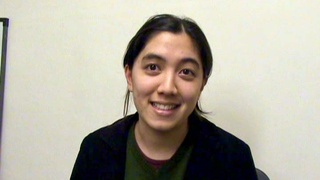Interviews
Yes, Nikkei culture exists (Spanish)
(Spanish) People identify us as a group; perhaps to some [of these people we are a] closed [group], but [one] that has very well placed values. A Nikkei culture -- precisely what I had told you in [my responses to] the previous questions -- a Nikkei identifies with very positive values. Therefore, Nikkei culture, a sum of all the folklore that we can bring, be it odori, eisa, shamisen – shamisen on the Japan side, sanshin on the Okinawa side, all this kind of mixed cultural expressions of Nikkei identity, and its values, make up what we call Nikkei culture. Definitely [Nikkei culture] exists, and it definitely not only exists but that each of us transmits it.
Date: September 14, 2007
Location: Lima, Peru
Interviewer: Harumi Nako
Contributed by: Asociación Peruano Japonesa (APJ)
Explore More Videos

Japanese American community life
(b. 1939) Japanese American painter, printmaker & professor

Starting over after the war: denial of all things Japanese
(b. 1923) Nisei from Washington. Resisted draft during WWII.


The Japanese society reacts to Nikkei living in Japan (Japanese)
Tsuda College President, researcher of Nikkei history

The identity of Nikkei Canadians seen in the Buddhist Church (Japanese)
Tsuda College President, researcher of Nikkei history

Nikkei means fusion (Spanish)
(b. 1969) Former president of Centro Nikkei Argentino.

Easier to be a foreigner in Japan (Spanish)
(b. 1969) Former president of Centro Nikkei Argentino.

The various realities of Nikkei in Latin America (Spanish)
(b. 1950) Nisei Chilean, Businessman


Growing up with Japanese language and values
(1925 - 2018) Nisei educator from Hawai‘i

The political effects on Nikkei during the war (Spanish)
(b. 1950) Nisei Chilean, Businessman

To be more Japanese than you really are (Spanish)
(b. 1950) Nisei Chilean, Businessman


The importance of learning cultural diversity (Spanish)
Sansei Argentinean

Conflicting relations between Argentina and Japan (Spanish)
(1925-2014) La Plata Hochi, Journalist
